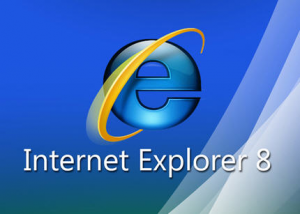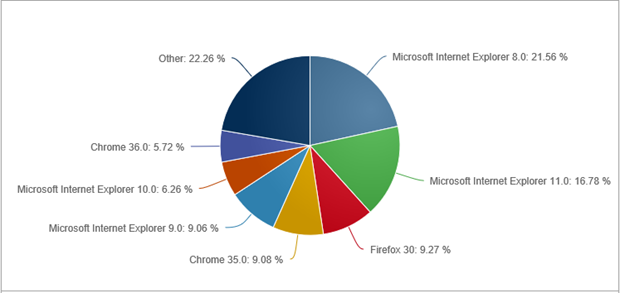Internet Explorer 8 and Earlier No Longer Supported from January 12 2016
 Microsoft are trying to encourage users to update to newer versions of their Internet Explorer web browser which is currently at version 11. Existing users are slow to upgrade though with as many as 20% of users still stuck back using Internet Explorer 8.0.
Microsoft are trying to encourage users to update to newer versions of their Internet Explorer web browser which is currently at version 11. Existing users are slow to upgrade though with as many as 20% of users still stuck back using Internet Explorer 8.0.
The software developer is dropping support for updates, patches and security fixes for Internet Explorer 8 in January 2016 because the browser will be over 5 years' old at that time.
According to the company, malware is only detected roughly 2/3rds of the time when using Internet Explorer 8, but even a jump up to Internet Explorer 9 increases that detection rate to 99%. For this reason alone it is surely worth upgrading soon; this is how Microsoft developers think anyway.
It is worth appreciating that the most popular Windows operating system in use today is still Windows XP which is way out of date compared to Windows 8.1. Software users just don't upgrade or update often in a lot of cases. The cost of the software and multi-license packs for business, as well as the hassle of upgrading can make it a pain to be bothered with. More often that not certain hardware components won't be compatible with a different version of Windows and software drivers often are simply not available for another version of Windows to upgrade to making the upgrade path for Windows not a simple one.
Net Applications gathers research information on software usage patterns and by their estimates IE 8 is still used on 20 percent of desktop computers. This tracks to some degree because Windows XP was coupled with IE 8 and there are still many XP users out there. Slow to update the version of Windows means they're probably slow to upgrade their internet web browser too under the guise of “If it ain't broke, don't upgrade it.” Of course, only with a malware intrusion or other security issue cropping up do users then get the message that they should have been more prescient about their upgrades, but by then it's often too late.
Internet Explorer 9 and 10 will also be gradually phased out over the next few years. Older versions of IE cannot be installed in Windows 8.1 or Windows Server versions. Users of Windows 7, 8 and 8.1 are required to install Internet Explorer 11 to continue to receive the most frequently updated security patches.
There is no “kill switch” option that Microsoft can deploy for users who insist on using Internet Explorer 8. It is up to the individual and businesses to decide when to bother to upgrade their software after all.

